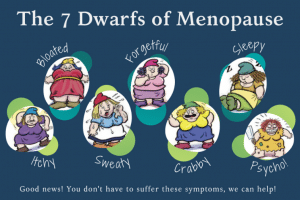When it comes to women’s hormone health, estrogen often gets the spotlight, but progesterone is important for many reasons, especially when it comes to fertility.
Progesterone is the “pro-pregnancy” hormone. It is produced by the corpus luteum cells of the ovary following ovulation and helps maintain the uterine lining for fertilization. The peak level of progesterone is measurable seven days after ovulation, or day 21 of a standard 28-day menstrual cycle. Measuring progesterone levels during its expected peak can help determine if ovulation occurred as well as whether the level was enough to support implantation and pregnancy. A progesterone level greater than 6 ng/mL around cycle day 21 confirms that ovulation did occur, but functionally, a level of 15 ng/mL or more is considered optimal for pregnancy.
The Continued Importance of Progesterone
Progesterone continues to be important for women long after fertility concludes, and they have transitioned into menopause. It is neuroprotective, playing a role in memory, cognitive function, anxiety and sleep. Symptoms of low progesterone include spotting between and/or irregular menstrual periods and infertility, but also poor memory, brain fog, mood changes like anxiety or depression, insomnia and headaches to name a few.
Progesterone levels naturally decline during the menopause transition, but many women benefit from support during this season of life. Decreased progesterone levels during fertility years can be due to ovarian cells that are under oxidative stress, sub-optimal estrogen levels that don’t produce a strong LH surge (the hormone surge that triggers ovulation), an LH surge disrupted by poor sleep or stress, Polycystic Ovarian Syndrome (PCOS), or various micronutrient deficiencies.
Supporting Progesterone Production
Progesterone can be supported through optimizing nutrients such as Zinc, Magnesium, Vitamin D and Vitamin C, botanicals such as Vitex/Chaste Tree Berry or Wild Yam Extract, antioxidants from eating the rainbow of fruits and vegetables, practicing stress management techniques regularly, and improving sleep.
Whether dealing with irregular cycles, fertility issues, or menopause related symptoms, it is important to test your progesterone levels so that the best strategies for support can be applied. Valeo offers a full hormone panel lab which can help you get a better understanding of your levels and how they may be affecting your health.
Call our office at 952-949-0676 to learn more or to schedule a complimentary consultation call with me to see if I may be able to help you in this journey.
Read more about how I have helped women manage their hormones, gut health, cognition, and more:




